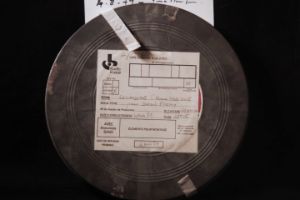Concert & binaural audio livestream | Éliane Radigue
Éliane Radigue: The Electronic Works 12
Les Chants de Milarepa V (1983)
Premiered on 2 April 1984 at the French House of Columbia University in New York.

“Éliane Radigue – Échos”. A film by Éleonore Huisse and François Bonnet, F 2021, film still © Éleonore Huisse, François Bonnet
“Les Chants de Milarepa” refers to the 11th century yogi and poet Jetsün Milarepa. Éliane Radigue’s intense engagement with Tibetan Buddhism has influenced her music. “Mila’s Journey Inspired by a Dream” marks the end of the song series for the time being.
To celebrate the French music pioneer Éliane Radigue’s 90th birthday, MaerzMusik presents her entire electronic music oeuvre for the first time live. A series of seventeen concerts performed under the sound direction of François Bonnet, aka Kassel Jaeger, spreads across the entire festival. Set in the unique acousmatic environment of the Zeiss-Großplanetarium, this homage attempts to give full access to the enchanting depth of Radigue’s music for loudspeakers created between 1970 and 2000.
“Éliane Radigue was born on January 24th, 1932 in Paris, where she still lives and works today. From her Parisian childhood she will keep the memory of a secret initiation into music, mediated by a prudent piano teacher. Then she will continue with the harp, with singing and composition. But it is through the contact with ‘musique concrète‘, alongside Pierre Schaeffer and later Pierre Henry, that Radigue's music will find its genuine path.
Over more than 50 years there will be three distinct periods, each of them marking a rupture while evoking in its own way an inspired exploration of thresholds, of spaces opening up in intervals, and of a dialogue between listening experience and inner experience, personal history and sensible memory. The first period (1968–1971) is that of work on feedbacks and re-injections, an embryonic phase already signalling extreme preciseness as well as work on thresholds and threatened equilibriums. The second period that of maturity, and spanning thirty years (1971–2001), is characterised by a fruitful production of electronic compositions, indelibly linking her music to the unique beats of the ARP 2500 synthesizer. This period also initiates the elaboration of long forms with subtle variations that blossom and resonate between the story carried by the music and the test of time necessary for its unfolding. The third period, still ongoing, is that of her acoustic works created in close collaboration with musician-accomplices coming from all horizons, bringing an additional relational dimension to a music, which until then had been constructed solitarily.
Throughout her life, Éliane Radigue has developed a candid, demanding and inspiring body of work which today influences a whole new generation of musicians.” (François Bonnet)
“Milarepa is a great saint and poet of Tibet who lived in the 11th century. His autobiography, the ‘Mila Kabum’ or ‘Namthar’, as told to his closest disciple, Rechungpa, has been translated into several western languages. In this story of Milarepa’s life, we can see how, through years dedicated to meditation and related practices in the solitude of the mountains, subjecting himself to the severest form of asceticism, Milarepa achieved the highest attainable illumination and the mental power that enabled him to guide innumerable disciples. His ability to present complex teachings in a simple, lucid style is astonishing. He had a fine voice and loved to sing. When his patrons and disciples made a request or asked him a question, he answered in spontaneously composed free-flowing poems or lyric songs. It is said that he composed 100,000 songs to communicate his ideas in his teachings and conversations.
The large collection of stories and songs, the ‘Jetsun Gurbum’, was translated first into English by Garma C. C. Chang. There is also a rare, little known collection, ‘Stories and Songs from the Oral Tradition of Jetsun Milarepa’, which existed in an oral state longer than the other works. ‘Drinking the Mountain Stream’ (Lotsawa Publications), from which the songs in this piece were taken, is the first English translation of these texts, made by Lama Kunga Rinpoche and Brian Cutillo.
Lama Kunga Rinpoche has kindly agreed to record his singing in Tibetan, and Robert Ashley has given his voice to the English translation of these songs.” (Éliane Radigue)
Programme
Éliane Radigue
Les Chants de Milarepa(1983)
Music for loudspeakers / ARP 2500 synthesizer on magnetic tape, 62 min 22 sec
5. Mila’s Journey Inspired by a Dream
Produced 1981–1983 at Éliane Radigue’s studio in Paris.
Chanting: Lama Kunga Rinpoche (recorded by Laetitia Sonami and Maggy Paine in Oakland, California).
Voice: Robert Ashley (recorded by the composer at 10 Beach Street, New York).
Digital mastering: Bill Kipper, Masterdiks Corporation
Cast
François J. Bonnet – sound direction